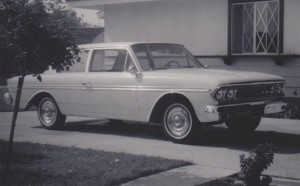A fundamental problem with our approach to healthcare reform is the emphasis on insurance as opposed to healthcare purchased by the consumer. While it is an imperfect analogy, you don’t purchase car insurance before you have bought the car. Similarly, why should you be forced to purchase health insurance before you know what type of cancer or heart attack you are going to have?
There is agreement on both sides of the political spectrum that medical costs are too high. We pay the most in the U.S. for healthcare among developed nations and have no better patient outcomes. From the simple procedures like labs and imaging to doctor and hospital charges, the bills seem excessive and get larger every year.
Hence, there is always great talk about letting the consumer shop for medical services. The well established and accepted economic theory is that when consumers enter the market place their research, comparisons and bargainig will encourage competitive pricing from the sellers. Consequently, the market place sets the price. This assumes good knowledge and information to the consumer and a relatively unfettered market place. Neither of those is true in the healthcare field.
Comparitive shopping for medical services is all but impossible. Which price do you compare a) The over the counter price b) The special price for cash customers or c) The price negotiated by the insurance company. That’s assuming you can even get pricing or understand the medical billing codes.
Often times the pricing does not actualy reflect the value of the procedure. There are a variety of forces distorting the whole pricing model: a) Medicare and Medicaid reimbursement b) Purchases subsidized by the government c) Special contracts between insurers, hospitals and doctor groups d) Mandated emergency room care and e) Cost shifting because many ER visits go unpaid by the consumer, to name a few.
Perhaps the health insurance model that comes closest to consumer engagement with medical expenses is the Health Savings Accounts (HSA). Under the HSA the insured must purchase medical services and goods with their own money up to the level of the deductible before any plan benefits are covered. While this model puts more responsibility on the consumer, the lack of good information renders it all but useless. HSA’s can be useful for individuals that have known yearly recurring medical expenses and procedures. See HSA’s and individual mandatess
Even though car insurance doesn’t cover oil changes, we want our health insurance to cover some yearly maintenance. This is a tacit acknowledgement that the combination of big government and big corporations has distorted the healthcare pricing models. The least they can do is throw us a bone or two in the form of some office visits at a low copay.
As we all know, the big flaw with the pre-buying car insurance analogy is the unexpected and crisis nature of major medical events. You don’t go shopping for the best back surgeon when you are being wheeled into the emergency room. When we do have time to make decisions we often default to what the doctor suggests is the best test or provider.
As for the Affordable Care Act and healthcare reform, I can understand how they had to use the health insurance model to extend healthcare to those currently without it. While the novice economist in me leans towards a system where consumers engage the market place to make purchases, the distorted healthcare market is not friendly for consumers to make informed decisions.
We are left with consumers being told to buy insurance because that is some how less confusing than trying to figure out the healthcare market. As for me, I will purchase insurance to cover the well maintained used car I hope to buy. If I end up being coerced into buying that shiny new European convertible I always wanted, I’ll just park it in the garage and never drive it so I won’t be in an accident that I can’t afford. That’s my strategy.
